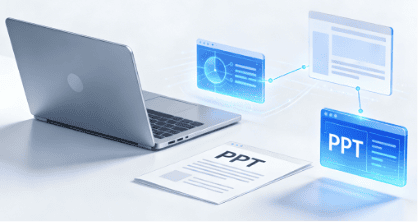Artificial intelligence (AI) significantly impacts society today as it revolutionizes various aspects of life. Healthcare, business, and real estate are some sectors enjoying the AI revolution’s tremendous benefits. Artificial intelligence’s ability to recognize patterns, analyze data, and make independent decisions has a provable impact on how people work and interact.
Artificial intelligence plays a significant role in improving many lives in today’s society. Businesses leverage AI-powered solutions to mitigate challenging issues such as cybersecurity. It is a game-changer for many sectors, such as healthcare and education. The good news is that individuals can also use AI to improve their quality of life.
Here are some ways AI improves businesses:
AI-Based Medical Procedures
Artificial intelligence significantly impacts medical procedures and allows healthcare practitioners to opt for AI-enabled surgical procedures. The Da Vinci surgical system is a robotic technology that is available in many modern hospitals. Experienced medical experts use this technology to conduct minimally invasive surgical procedures.
Integrating AI into surgical procedures enhances accuracy and precision beyond human capabilities. These techniques contribute to less intrusive procedures, which reduce blood loss, pain, and stress for the patient.
While these AI-assisted technologies play a crucial role, a skilled doctor must oversee the surgical process to ensure the patient’s safety and well-being during surgery.
AI and Cybersecurity
Artificial intelligence is now a key part of making decisions in cybersecurity. These AI threat detection systems can automate highly accurate responses to incidents. This change is vital for handling the ever-changing nature of cyber threats and managing the wide range of threat intelligence data.
While AI seems effective at detecting threats, hackers still find ways around it. These detection techniques try to spot threat tactics that are hard to notice and stop. For example, they identify attacks through cloud services, IoT devices, and mobile gadgets.
Fast Diagnostics
Artificial intelligence offers doctors a wide range of treatment options, revolutionizing diagnostic processes. Here is how it works. After the physical examination, the doctor inputs the results into a computer system. The system uses advanced algorithms to analyze the digital results thoroughly and automatically identify potential illnesses and deficiencies the patient may have.
In addition, AI suggests possible treatment plans and methods based on its analysis. AI accelerates the diagnostic phase. AI gives medical experts valuable insights into the most viable treatment options for various conditions.
Integrating artificial intelligence into healthcare marks the era of quick and accurate diagnostics. It enhances the overall patient care process by streamlining medical experts’ decision-making processes.
Improved Radiological Advancements
Scientists are making remarkable strides in using AI in cardiac magnetic resonance imaging (MRI), prenatal imaging, and whole-body MRI. Technological advancements gradually spread, revolutionizing medical diagnostics.
As the quest for more advanced algorithms that can diagnose specific illnesses and interpret scan results increases, the integration of artificial intelligence becomes a pivotal breakthrough in the entire plan.
AI development plays a crucial role in achieving these milestones in radiological advancement. It offers sophisticated solutions that significantly contribute to medical imaging precision and refinement.
The continued exploration of advanced algorithms associated with artificial intelligence symbolizes a transformative era in radiology. It promises the widespread availability of advanced imaging techniques and a deeper understanding of medical cases and conditions. This is done through more efficient and accurate diagnostic tools.
Artificial Intelligence in Education
The education sector has witnessed a remarkable transformation due to AI technology. The most evident improvements include adaptive assessment, personalized learning, and efficient administrative tasks.
Personalized learning platforms use AI to tailor content based on students’ needs for better engagement and comprehension. On the other hand, adaptive assessment leverages AI algorithms to evaluate learners’ performance, giving real-time feedback and highlighting challenging levels for optimal learning.
Furthermore, artificial intelligence solutions streamline administrative tasks, allowing educators to concentrate more on teaching. They enable the automation of scheduling, marking, and other repetitive responsibilities. Technological advancements allow inclusive, effective, and learner-centric education systems.
Improved Accessibility for Individuals with Disabilities
Experts use AI to improve digital and web accessibility for people with disabilities. Tools like image captioning, automatic recognition, voice control, and text-to-speech conversion allow individuals with auditory, visual, and motor impairments to access online content more easily. These tools enhance autonomy and inclusion in society.
Accessible Expert Services and Knowledge
Virtual assistants and AI chatbots make expert services and knowledge more accessible and widely available at cheaper costs. For example, AI can provide essential knowledge like legal advice, financial planning, medical consultation, and other professional services. As a result, a larger population can access these services.
Augmented Human Intelligence
AI can enhance human thinking and skills instead of destroying or replacing them. AI-powered tools help with research, decision-making, analysis, and problem-solving. They allow people to handle tough problems and come up with new ideas, which were once limited to big institutions. Now, these tools are available to many firms and easy to access.







